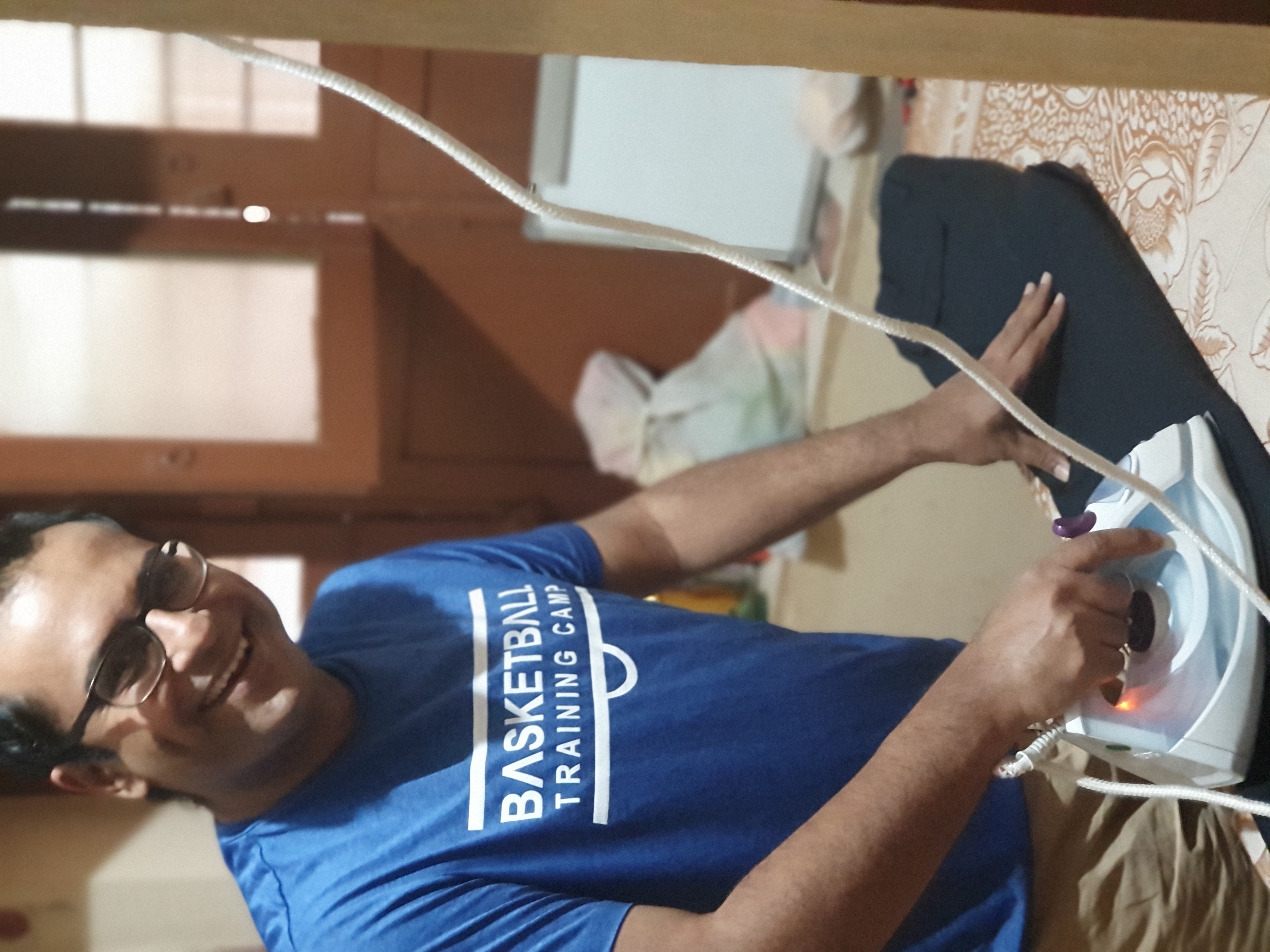
By Pulkit Singh
Coronavirus has brought
home many points, one right in the heart of the Indian patriarchy. One might
have never wondered why the responsibility of household chores falls on women’s
shoulders but the lockdown made the reason amply clear. Women across the
country asked, "Why just me!" There hasn’t been an online platform—be
it a culinary group or a fitness club—that hasn’t been privy to their venting,
frustrations, and expectations. Did the men measure up?
It would seem
so. Vinayak Badami, a chartered accountant from Belgaum, says, “I was just
making the morning tea and clearing up post-dinner before the lockdown. But now
I have increased my contribution to household chores. We delegated the work for
the lockdown. I did the brooming and vegetable chopping and my son would do the
mopping. The ladies divided the cooking between themselves, though I help out
there as well if I can."

Abhijith Joshi, a
maxillofacial surgeon from Hubli, says, “We divided the work between
ourselves and that has been continuing. My parents do their share of work. My
father helps in the kitchen as well.”
Both the men concur that it
wasn’t easy to get going with the home chores. “Everyone was so dependent on
the maids. It wasn’t easy to slip out of that but necessity makes us do
things,” Badami says. However, Joshi found it easy to slip into household
chores. “Right after our four-and-a-half-year-old son woke up, I made him brush
his teeth, bathe him and days when I was at home, I kept him constructively
engaged through the day. Apart from this, I would iron clothes. Since I am a
doctor, I had to attend to patients during the lockdown. The tasks were
delineated plus we shared the load,” adds Joshi.
Optional for men, must-do
for women
What do women think?
Kruthika Devurkar is a 32-year-old homemaker from Bangalore. She says, “Before
the lockdown, my husband was hardly at home to help but if we measure, it was
about 15-30 minutes [of him helping] per day and now with work-from-home, it
has increased to 60-90 minutes daily.”

Everyone agreed that post
lockdown, the contribution to the home chores would reduce. Badami says, “Doing
household chores on our own isn't easy. We have learned the value of that.”
Kruthika points out, “Generally, the intent to share the chores has increased.”
But herein lies the catch:
what is a matter of choice for men is a must-do for women. How many ladies can
excuse themselves from housework on the pretext of a busy tomorrow? The
situation is worse for single mothers. To manage a job, demands of kids and the
chores that never seem to get over, it’s a wonder they are staying sane through
it all.
Saying no to 'Boys will be
boys'
The situation is getting
better but there is still scope for improvement. The seeds of change have to be
sown when the men are boys. Anuja Joshi mentioned repeatedly that it was due to
his upbringing that her husband was comfortable with home chores. He had seen
his father’s contribution at home while growing up, as had she seen her father
help out her mother with housework. When the environment at home is that of
inclusiveness instead of having carved-in-stone gender roles, the boys will
benefit from it as much as the girls.
When I observed around me,
I saw men helping out. Whether it was my 65-year-old neighbour whom I see
diligently cleaning his balcony with a broom or my younger cousins who may have
grown up with the drivel of "men don’t enter kitchen" but choose to
ignore it. Times are changing. As Joshi put it aptly, “If only one or two
people are doing the entire work, it is not enjoyable.”
To recognise that help is
not offered because it is needed but because the women have as much right to
rest, recuperation and enjoying their lives marks an important shift in
thinking. It humanises women.